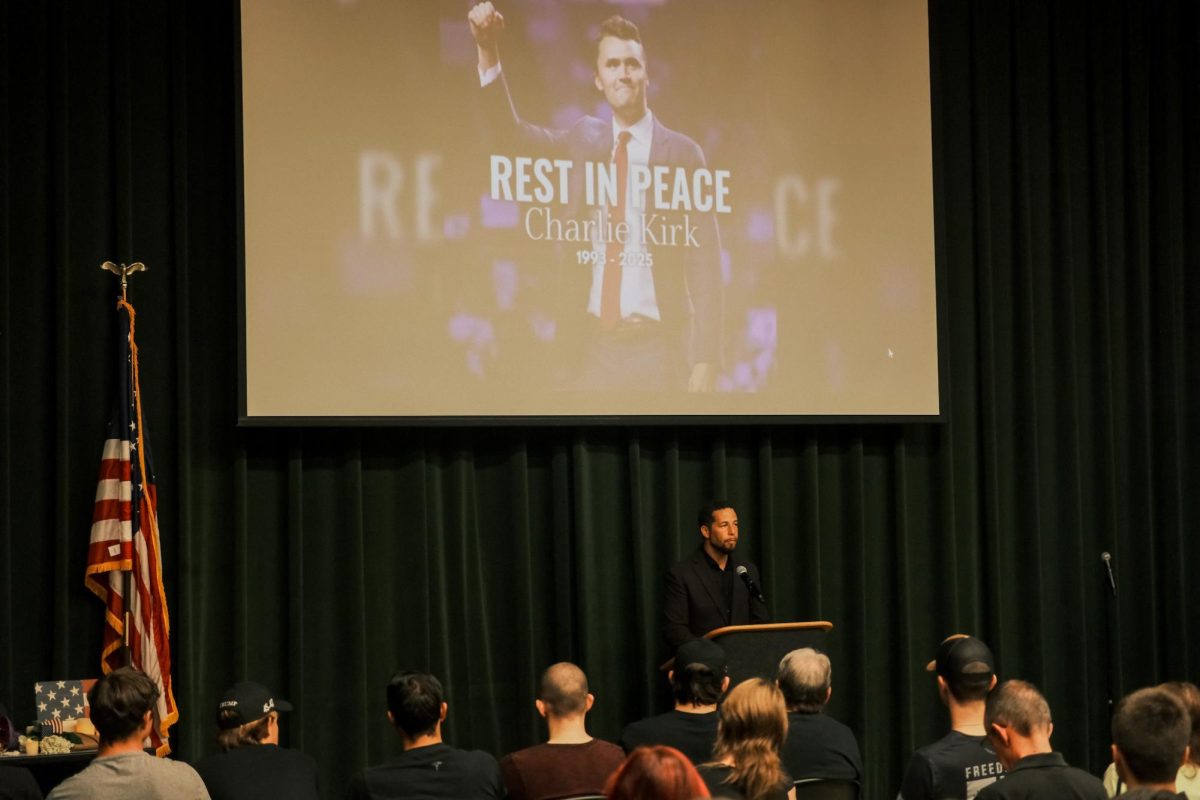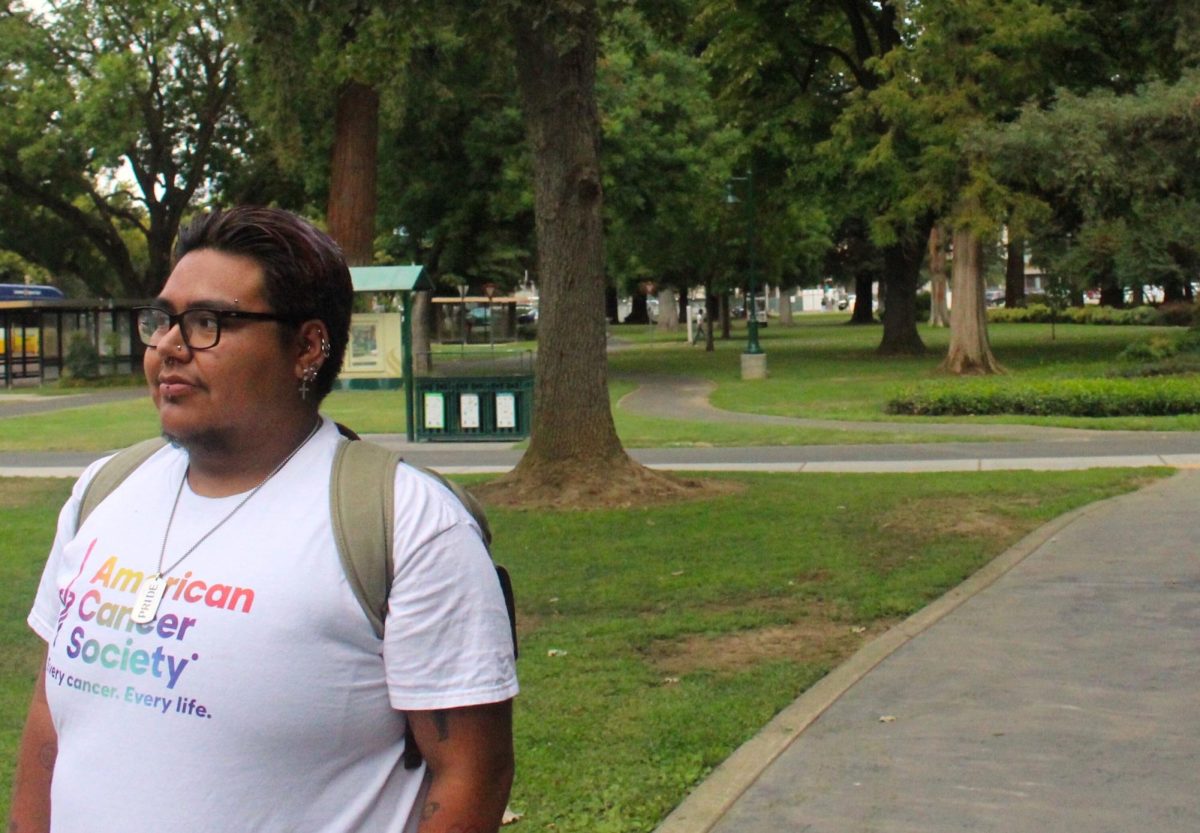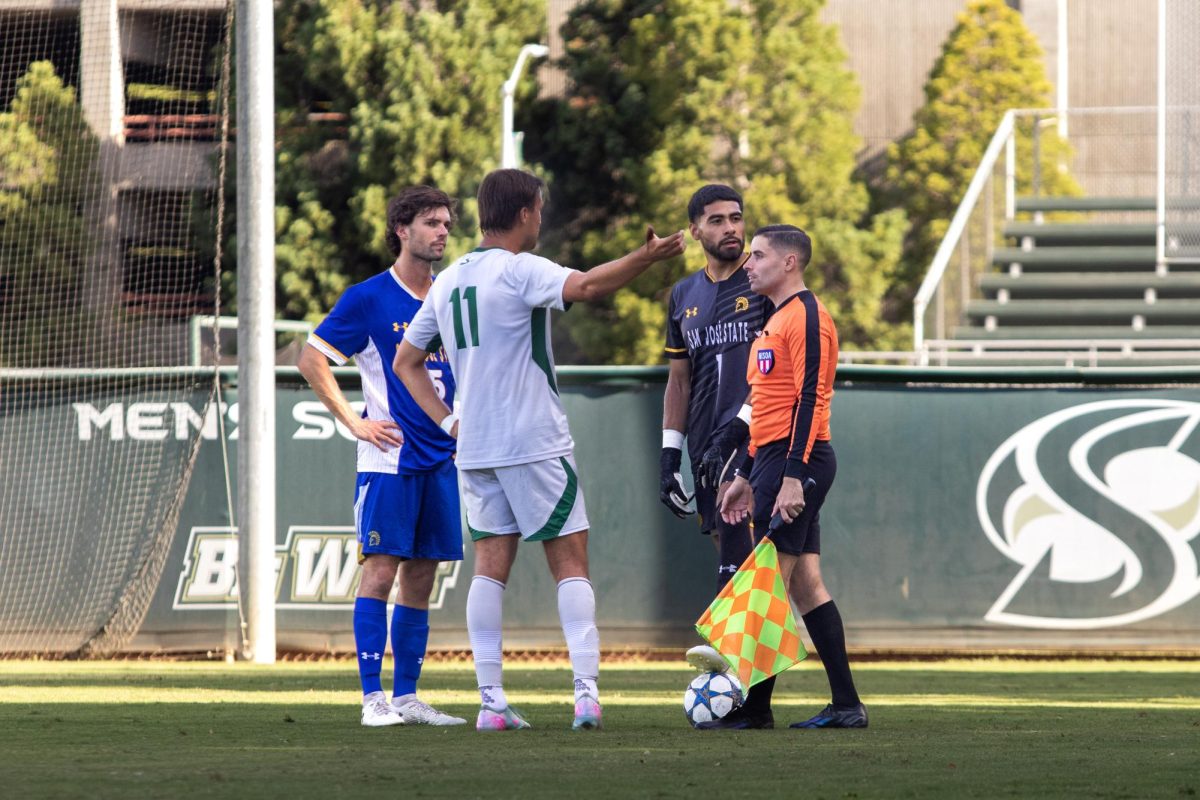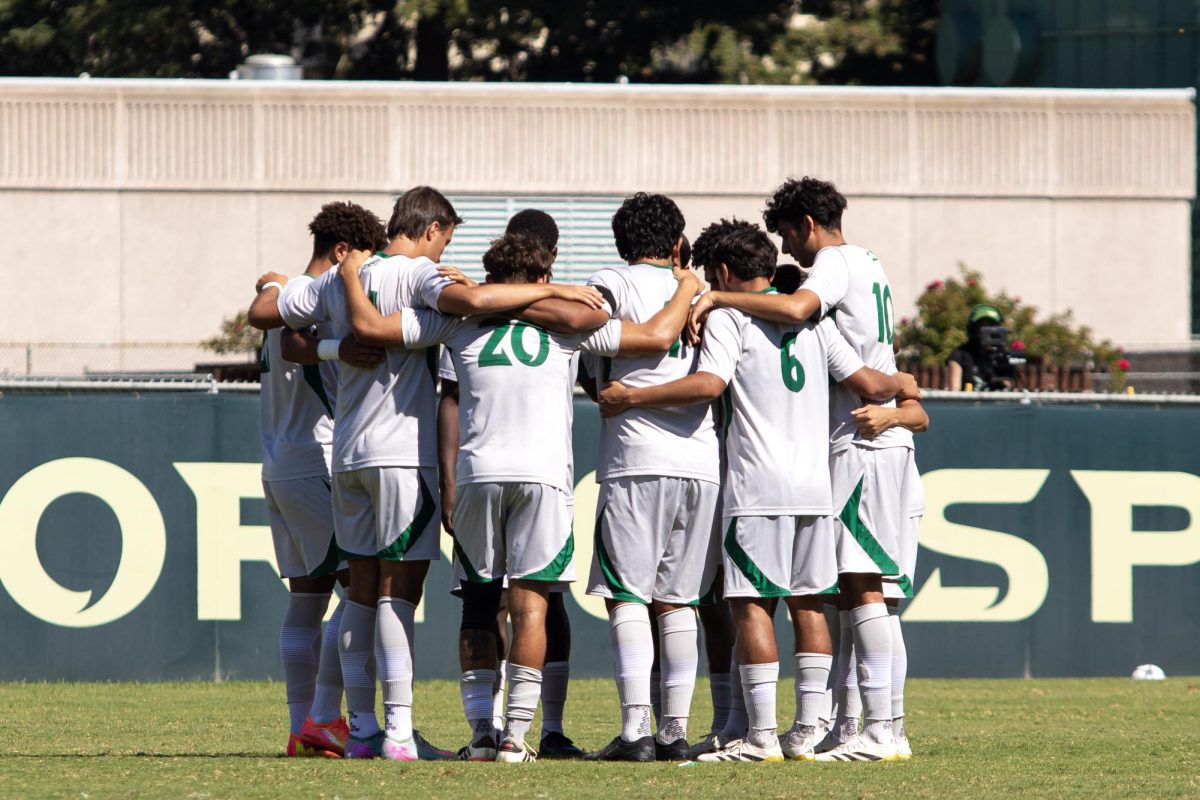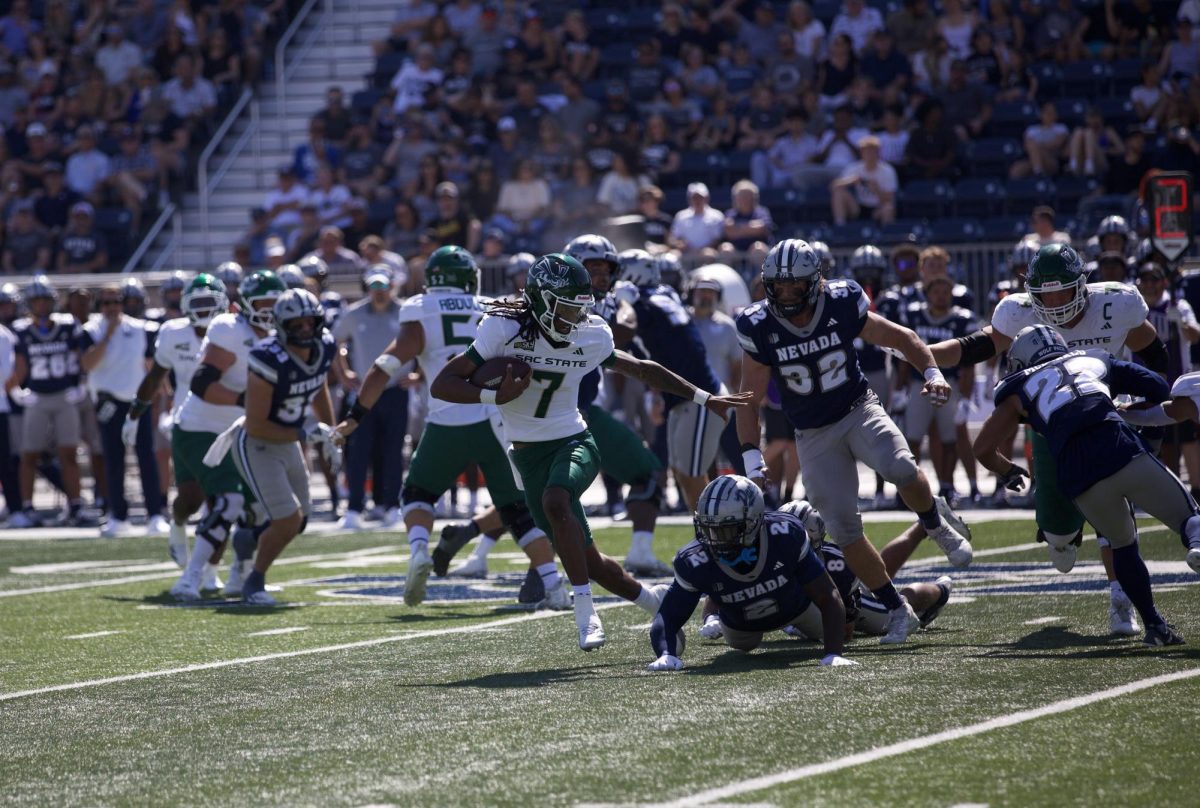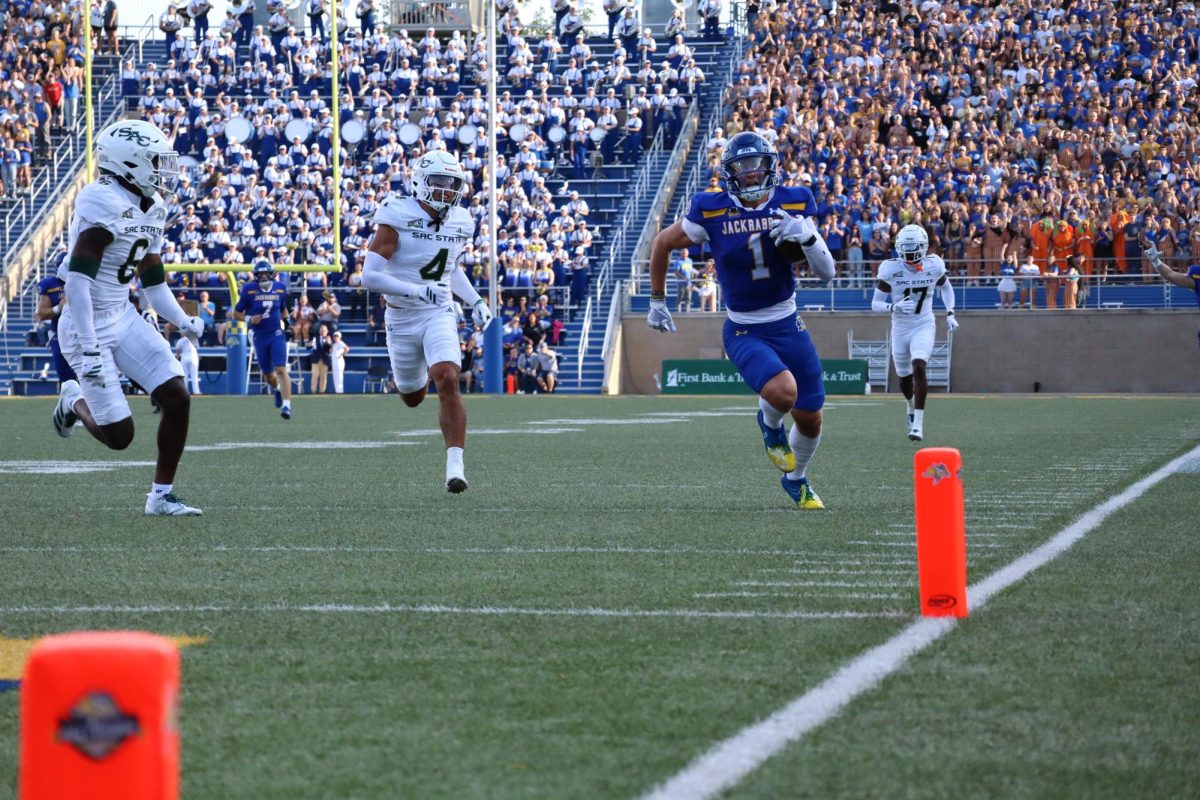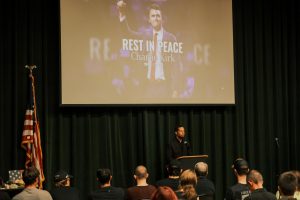Operation graduation
December 7, 2007
For most seniors, graduating is the light at the end of a long tunnel. Some seniors have two weeks left before they wear the cap and gown, while some have one more semester before they walk across the stage.
But there is one thing that makes graduating difficult for seniors: that nagging thought in the back of their heads telling them to skip class, or the little devil on their shoulder telling them to procrastinate on their homework. It’s that little thing called senioritis.
“I’m so done with school. I don’t have hard classes and I still don’t want to do the work,” said Julia Rath, senior psychology major. “I’m sick of homework. I’m sick of not having any money. I’m over it.”
Senioritis is common among college students. Most of them have been in school most of their lives and can’t wait to get to the next stage of their lives, whether that next stage is to pursue a career they love, or just to get out of the drudgery of school.
Like most students, Eric Sterling, a senior international business major, said he’s been going to school all his life.
“I’ve been doing part-time school, part-time work,” Sterling said. “I’m sick and tired of going to school.”
Procrastinating and skipping classes usually leads to a bigger work pile, and this in turn, leads to more stress.
“It goes back to the procrastinating because I get anxious when I know I have to work on something hard and I have trouble getting started,” said Scott Sampson, senior geography major.
This stress is easibly avoidable if students practice good stress management techniques.
Shauna Schultz, a nutritionist at the Sac State student health center, said stress affects every part of your body and practicing good stress management will help you calm down and stay healthy.
“Practices include deep breathing, exercise, eating healthy, massage, talking to a loved one, listening to music, resting, meditation or yoga,” Schultz said.
“Avoid foods and beverages that cause highs and lows such as too much caffeine, energy drinks and sugar,” she said.
Schultz said to instead choose foods that stabilize your energy levels and mood, such as balanced whole grains, lean protein, healthy fats, fruits and vegetables. Remember to eat regularly too. Skipping meals can lead to low energy levels, irritability and hunger, she said.
There are a couple of lucky students out there who stay on the ball and never feel the effects of senioritis. Senior psychology major Richard Magana follows a basic plan of common sense to get him through his senior year.
“Get senioritis during your junior year,” he said. “It’s my last year and I wanted to finish strong. My plan was just to spend more time at school. I stay on campus a lot to get rid of distractions and get some work done.”
Another trait of senioritis is a tendency to skip classes. But the majority of students who skip class do so to better manage their workload.
“There’s this one class. I don’t skip a lot, only a few. I have to do a lot of studying and I skip class to manage my time better,” said Wesley Villalon, senior philosophy major.
Surprisingly, some students aren’t all that thrilled about graduating. A combination of not knowing what to do after graduating and not feeling a sense of accomplishment contributes to the frustration.
“I’m a little irritated because I did all that for a piece of paper?” Rath said. “When I get a job that pays good money, then I’ll feel good.”
Sampson expresses similar sentiments.
“Honestly, I’m asking myself ‘now what?'”
A lot of students are relieved to be free of midterms and finals, but most seniors know the real world will prove to be more challenging than anything they faced at school.
“When you’re in school you can always just get another work load. School is cushy. Out there, there’s no guarantee,” Villalon said.
A lot of seniors can’t wait to graduate and start careers, but some seniors agree they will miss a couple of things about college aside from the parties and socializing.
“I’m going to miss those classes that are really interesting and really grab your attention,” Villalon said. “I’m going to miss encountering those new ideas in a classroom setting.”
Charles Weinstein can be reached at [email protected]


